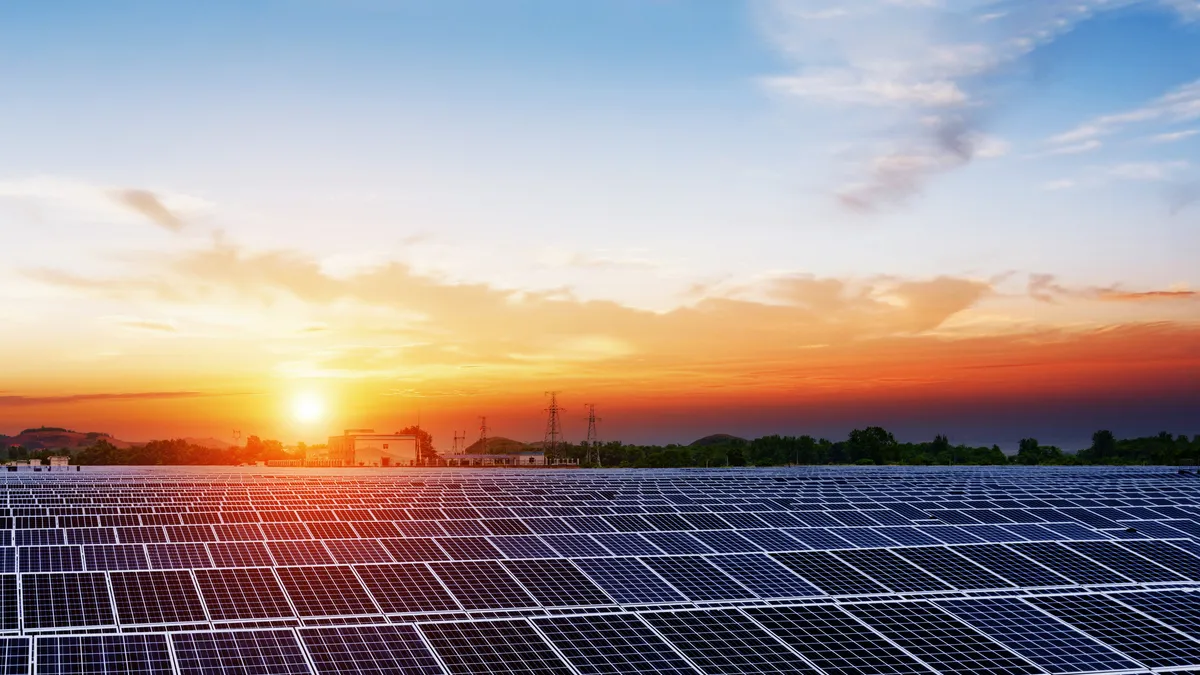Dive Brief:
- Corporations around the world signed deals for 13.4 GW of clean energy last year through power purchase agreements (PPAs), more than doubling 2017's record amount of 6.1 GW, according to a Bloomberg New Energy Finance (BNEF) report released Monday.
- In the United States, companies tripled the amount of clean energy secured in 2018, signing PPAs for 8.5 GW.
- Facebook was the largest corporate buyer, signing for 2.6 GW of renewables globally. However, the United States saw a growth in smaller companies signing their first clean energy PPAs, accounting for 31% of the deals in the country.
Dive Insight:
The trend of green corporate power purchases accelerated in 2018, with technology companies leading the way. The record year already exceeded 2017 numbers by 2 GW in August, according to an earlier BNEF report.
Most of the deals were purely for solar or wind, according to Kyle Harrison, corporate sustainability analyst for BNEF and lead author of the report.
Kaiser Permanente announced a significant renewables and storage deal in September — a PPA pairing 131 MW of solar and a 110 MW battery system in California with a 50 MW wind farm in Arizona. The importance of batteries will grow in PPAs as prices go down and companies increase their carbon-free goals to prioritize onsite generation, Harrison said.
"I think in the future, as these companies want to start actually claiming that they're consuming the electrons from a clean energy project, if they want to do that and at the same time still emphasize that resiliency .... that's when batteries will be a huge factor in this space," Harrison told Utility Dive.
Onsite generation for a technology company would require a resiliency component because data centers run continuously. Already, companies like Google have announced plans to power their operations nonstop with clean power, which would incentivize storage greater than the current PPA model, Harrison said.
"Storage is going to be a huge factor in properly executing that strategy, but even for Google, they're pretty candid admitting that that's a little bit of a ways out," he said.
While large corporate buyers like Facebook still make up the bulk of corporate renewable purchases, smaller companies are increasingly joining the game. Through the aggregation model, companies "can share risks associated with credit and energy market volatility with their peers," Harrison said in a statement.
Smaller buyers are typically partnering with bigger companies that have more PPA experience, according to BNEF. However, companies are trying a variety of templates to increase access to PPAs. This month, five companies with similar regional energy needs announced they were bundling their purchase of 42 MW of solar without using a single buyer to lead the negotiations.














